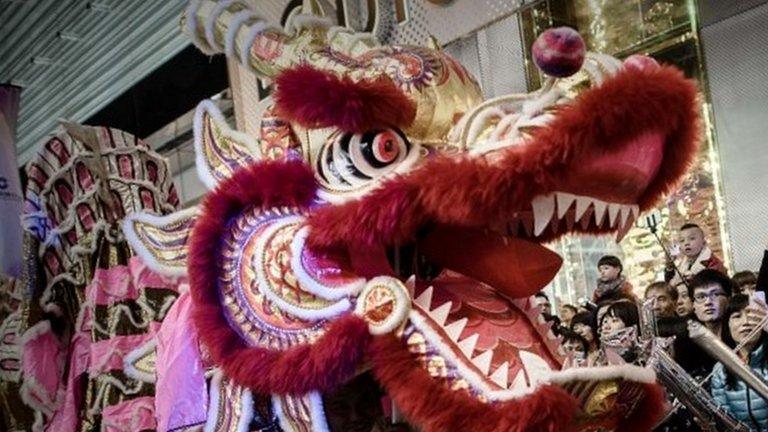China week: Hunting corrupt 'foxes'
- Published
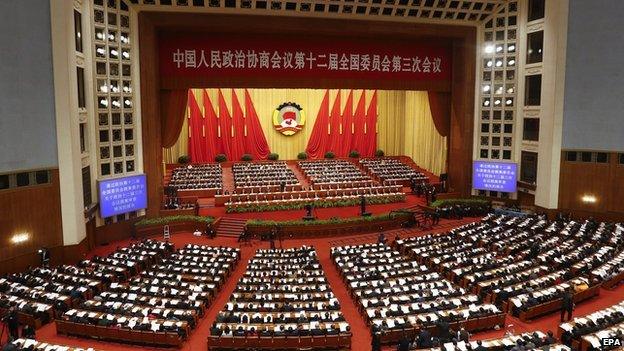
Chinese parliamentary sessions: the stuff dreams are made of?
I had a dream.
Not of the Martin Luther King variety, nor exactly a nightmare. No, it was a prosaic dream about the Chinese People's Political Consultative Committee (CPPCC), the advisory body which sits alongside the National People's Congress and repeats what it is told.
In my dream, I was in a hall with a BBC colleague from the Middle East, and suddenly I was called on to speak.
I got up, rather flurried and my colleague asked what I was going to talk about. "The CPPCC," I said, at which point he burst out laughing.
In my dream, I didn't see the funny side, but then in the layered way of dreams, I noticed that not seeing the funny side was actually the problem.
What was wrong with me? And when I woke up and reflected on this dream, the same question was uppermost: Why would a sane person dream about the CPPCC? Is this a diagnosable syndrome?
Will it follow a pattern of deterioration until I am dreaming about "the four comprehensives"? Is there a support group out there for me?
Lianghui lockdown aftermath: grey skies and tiger traps
I may not be alone in needing the support group.
Every year Beijing goes into political lockdown for the liang hui, "the two meetings", annual sessions of the CPPCC and the National People's Congress.
Three dramatic things happened on Sunday as soon as this lockdown was lifted: Beijing's air quality deteriorated, a disgraced PLA general was pronounced dead and a handful of top delegates were detained at their hotels before they had time to leave the capital.
Among Beijingers, there was predictable cynicism about political control of the skies, and rumours circulated about when exactly the former vice chairman of the Central Military Commission Xu Caihou had died, with some suggesting he'd actually passed away a week earlier.
Both stories reinforced the popular conviction that Beijing will go to great lengths to ensure perfect harmony for the liang hui.
And the most newsworthy story from the liang hui aftermath was the hotel detentions.
I wish I'd seen that. I'd been inches from these tigers only hours earlier, standing on the steps of the Great Hall of the People on Sunday morning trying to gather political opinion as they were filing in for the NPC closing ceremony.
If only I'd known, for example, that the vice-party secretary of Yunnan was going to turn into a tiger by lunchtime I would have made an effort to find him in the throng.
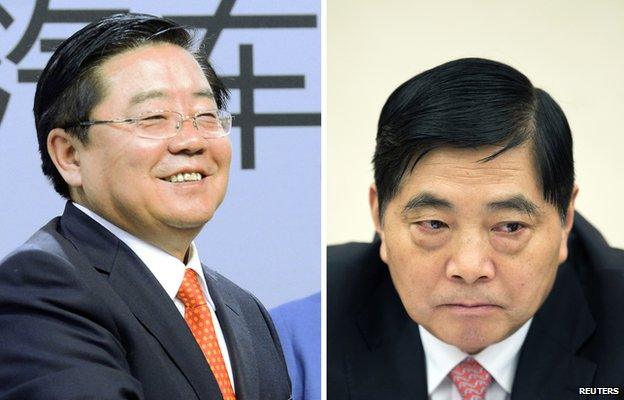
Qiu He (pictured right) and FAW Chairman Xu Jianyi are being investigated for "serious" discipline violations
Qiu He is an interesting case. With a public profile as an anti-corruption crusader and a market reformer, he had famously published officials' phone numbers to try to improve transparency, he'd privatised hospitals and schools, and avoided extravagant dining.
So why did the Central Commission for Discipline Inspection come looking for him on Sunday in his Beijing hotel?
The answer may very well be political, involving bigger tigers and a bigger fight.
But when we hear the case against Mr Qiu, it will probably focus on a real estate rush to the head and a posse of carpetbagging developers from his native Jiangsu.
With the property market slowing in Yunnan as elsewhere, Kunming has been left with a skyline of half-built high rises.
Since news of Qiu He's downfall, the Jiangsu businessmen in Yunnan have become hard to reach, perhaps busy packing their bags, afraid that they'll be caught in the net.
And perhaps more importantly, how many up-and-coming reformers who show personal initiative and energy can the party afford to lose?
Qiu He is just the latest in what's becoming a striking list.
'Fox hunt'

Operation Fox Hunt: China's attempt to track down overseas corrupt officials
There are so many interesting corruption stories this week, but we don't have all day.
So just a quick mention of the most intriguing: reports that Wang Qishan, right hand man to the president and head of the Communist Party's corruption watchdog, is planning to go "fox hunting" in the United States.
Operation Fox Hunt is the codename for the attempt to track down and extradite corrupt officials who have fled abroad with their ill-gotten gains.
If Wang Qishan goes to Washington DC it will be interesting to learn who he's after and to watch the US government response.
Which reminds me, I heard this week from an authoritative source that the Chinese government has asked the British government for help extraditing about 50 foxes who've gone to ground in the UK.
Other fox-hunting destinations are Australia, Canada and France, all places with good air quality and education for fox cubs.
Just space for a couple of other stories that caught my eye.
Third largest arms exporter
China has overtaken Germany in arms sales, according to the Stockholm International Peace Research Institute.
But the same report says the US still accounts for 31% of sales volume and Russia 27%. China is a distant third with 5%.
And as it moves up it will be keeping an eye on Japan, which has relaxed restrictions on arms exports and has much to sell.
The pen is mightier than the sword
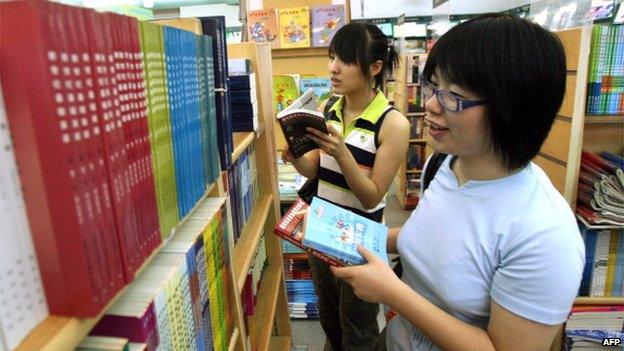
"Erroneous western values" - Chinese universities are being instructed to intensify textbook checks
After January's fulminations from the education minister against "erroneous Western values" in textbooks and classrooms, it's no surprise that universities have now received a notice from the Ministry of Education instructing them to intensify checks on textbooks from overseas.
The notice refers particularly to books in social sciences.
It requires local education departments to report back on problems, explaining that the response "should be objective and truthful… and include specific cases".
Target subjects include journalism and communications, economics and sociology.
When I discussed the textbook purge with a university teacher in Beijing, he said he was frustrated.
"They tell us they want world-class universities and cutting-edge innovation, but how can we achieve that with this kind of nonsense going on?"
Big number for the week?
One that caught my eye: in the first two months of 2015, China's online retail sales amounted to 475 billion yuan, an increase of 44.6% year-on-year.
Message: if you're in retail you need to be in online retail. Anyone want to buy a shopping mall in Kunming…?
- Published16 March 2015
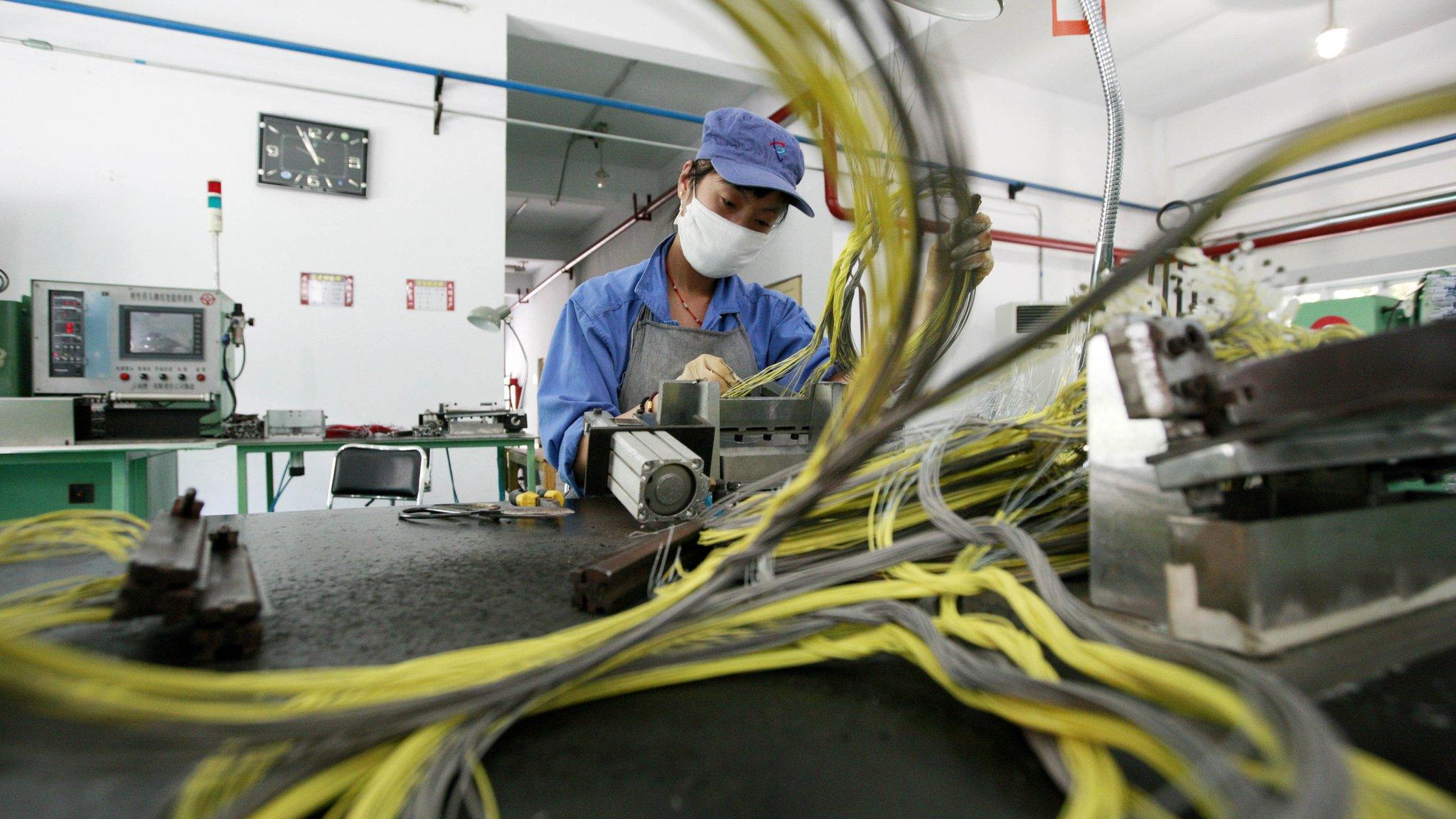
- Published16 March 2015
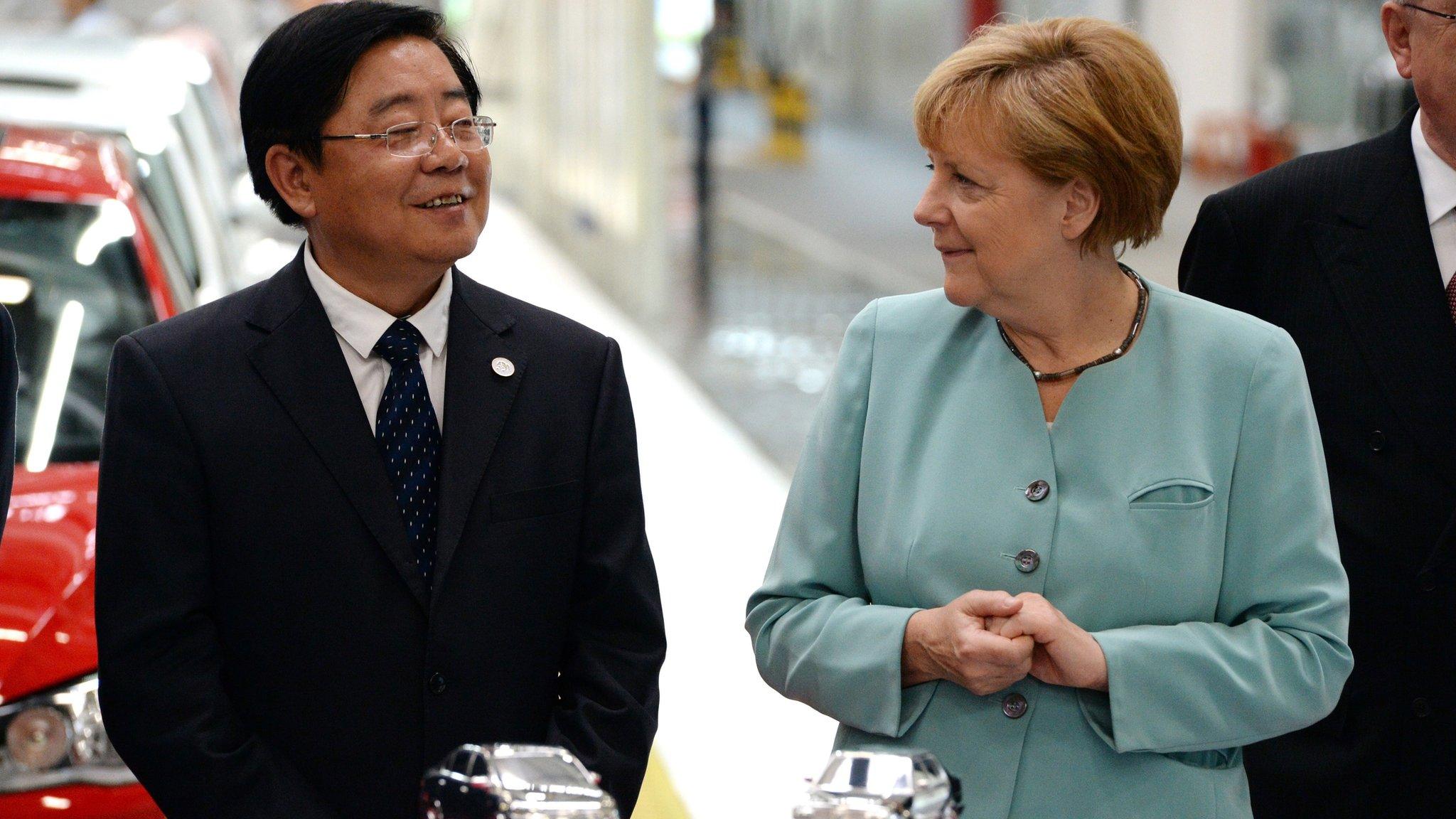
- Published20 February 2015
